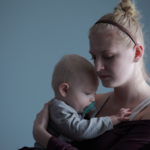
31 May Study identifies ways people experiencing infertility can maintain a healthy lifestyle
Monash University researchers have identified several barriers that people experiencing infertility face in maintaining a healthy lifestyle and have proposed practical solutions to address these challenges.
The study highlights that individuals with infertility often lack knowledge and opportunities in the following areas, which impede their ability to sustain a healthy diet and regular exercise:
- Evidence-based diet and exercise strategies.
- Support and resources to enhance self-management skills.
- Coping with the mental health burden associated with infertility.
A healthy lifestyle is recommended in multiple clinical infertility guidelines, and this is the first review to specifically address the unique challenges faced by people with infertility. The findings will inform the development of lifestyle interventions aimed at improving health outcomes.
The systematic review, published in Human Reproduction Update, evaluated the perspectives of over 4,300 healthcare professionals and people with infertility. Infertility, defined as the inability to achieve a clinical pregnancy after 12 months of regular, unprotected sexual intercourse, affects up to 186 million individuals globally.
Associate Professor Lisa Moran, joint senior author, Accredited Practising Dietitian, and Head of the Healthy Lifestyle Research Program at the Monash Centre for Health Research and Implementation (MCHRI), emphasized that the impact of fertility treatments can exacerbate the challenges of maintaining a healthy lifestyle. Therefore, equipping people with the necessary skills to feel empowered is crucial.
“Undertaking fertility treatment is a tough journey, and this review found that people with infertility who want to follow a healthy lifestyle want to feel capable of doing this,” Associate Professor Moran said. “Self-management skills boost confidence, and incorporating skills like goal setting and problem-solving are key to successful lifestyle change.”
She also noted the importance of support from health professionals, who enjoy motivating and supporting patients to achieve their goals. The study identified several barriers to lifestyle improvement, including lack of time for exercise and insufficient evidence-based information for dietary changes.
Dr. Steph Cowan, joint senior author and Accredited Practising Dietitian, suggested enhancing opportunities by involving partners, offering low-cost or free resources, and providing support via telehealth.
“Telehealth can reduce some logistical challenges and lower anxiety for people attending a fertility clinic,” Dr. Cowan said. “For those receiving in-person care, providing easy-to-understand evidence-based information means people don’t need to choose between their health, time, and money.”
The findings will be incorporated into a new Ask Fertility App, developed by the NHMRC-funded Centre of Research Excellence in Women’s Health in Reproductive Life and MCHRI. This app, expected to launch later this year, will provide high-quality information from leading experts and include tools for self-care, self-management, and shared decision-making.
It will join the suite of Ask Apps, which includes Ask Early Menopause and Ask PCOS.




